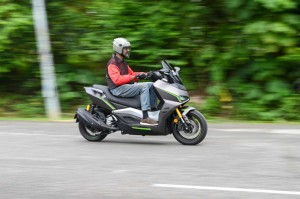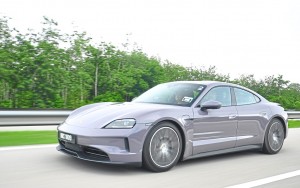BERLIN: From Beijing to New York, footage has emerged of taxi drivers cordoned off in bubbles by a layer of soft plastic taped around the driver's seat, from the roof to the console.
The makeshift measure, aimed at protecting them from passengers, is an understandable one, given reports that taxi drivers in places such as Thailand and Taiwan have picked up the coronavirus from their clients.
Meanwhile in Europe, where the virus has been confirmed in hundreds of thousands of people, taxi drivers are starting to kit out their cars with plastic partition walls separating the front from the rear.

Partitions are already an everyday sight in London's black cabs, where a large rear is separated off from the front by a sheet of hard plastic. And yet they are less familiar for cab drivers in many other parts of the planet, where passengers share the same interior.
The pandemic now appears to be changing this, and one company in Germany has started selling flexible polycarbonate screens that can be mounted behind the headrests of the front seats.
"This is a practical emergency measure," says Matthias Meltke, an entrepreneur in the town of Boehlen, near the city Leipzig in central Germany. He's fitted more than 50 taxis with partitions, each costing about €120 (RM569), since the virus arrived in Germany.
"At the moment, drivers and passengers are a bit afraid of each other," says the businessman, who came up with the idea while chatting to a friend from a taxi company.
He's not the only one to have had the idea, however. A taxi company in Liverpool has resorted to a similar measure, spurred by the outbreak. "We are fitting plastic protective screens into our cars," Liverpool's Alpha Taxis announced in March.
For those who don't have a partition or plastic bubble, face masks are advised. Taxi associations in Germany and elsewhere have been calling on drivers and passengers to wear masks inside the car.
"After all, we are currently driving the risk groups around and are very interested in protecting both passengers and ourselves," says Michael Oppermann from an association of taxi drivers in Germany.












